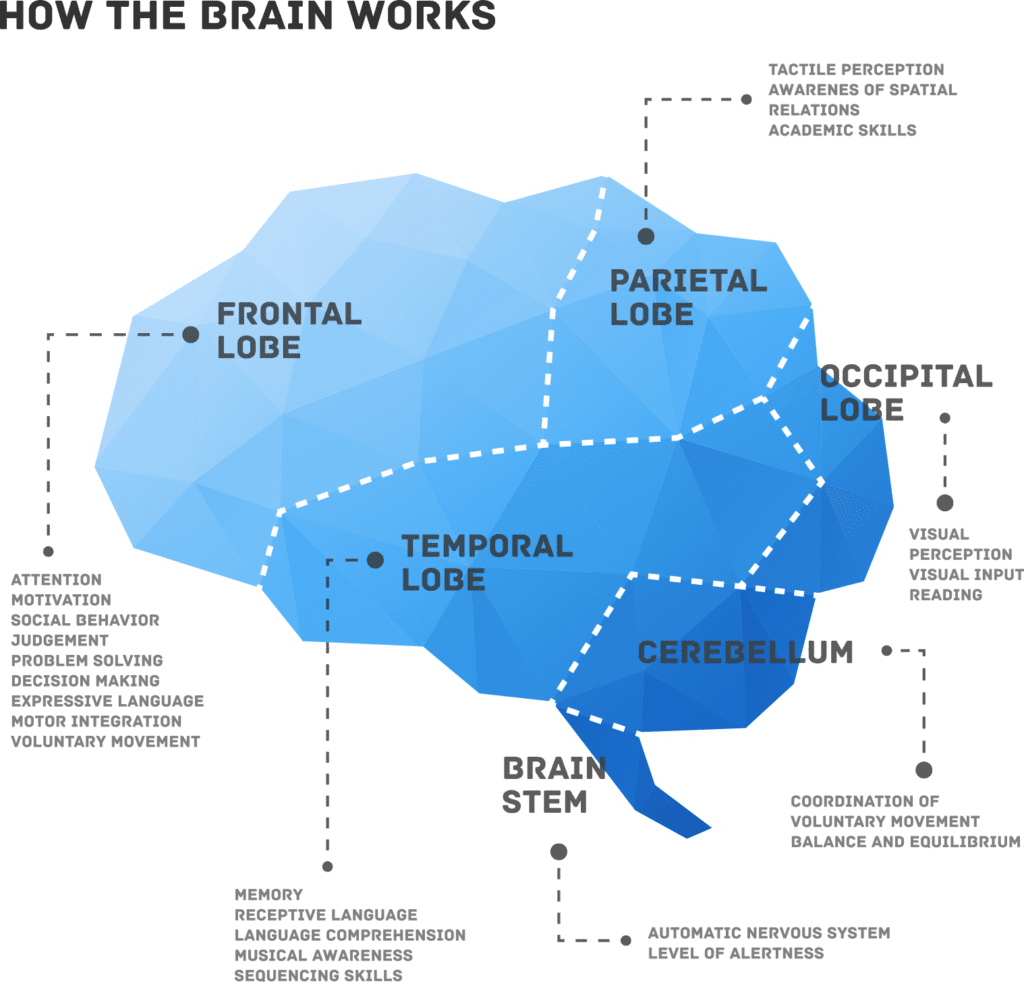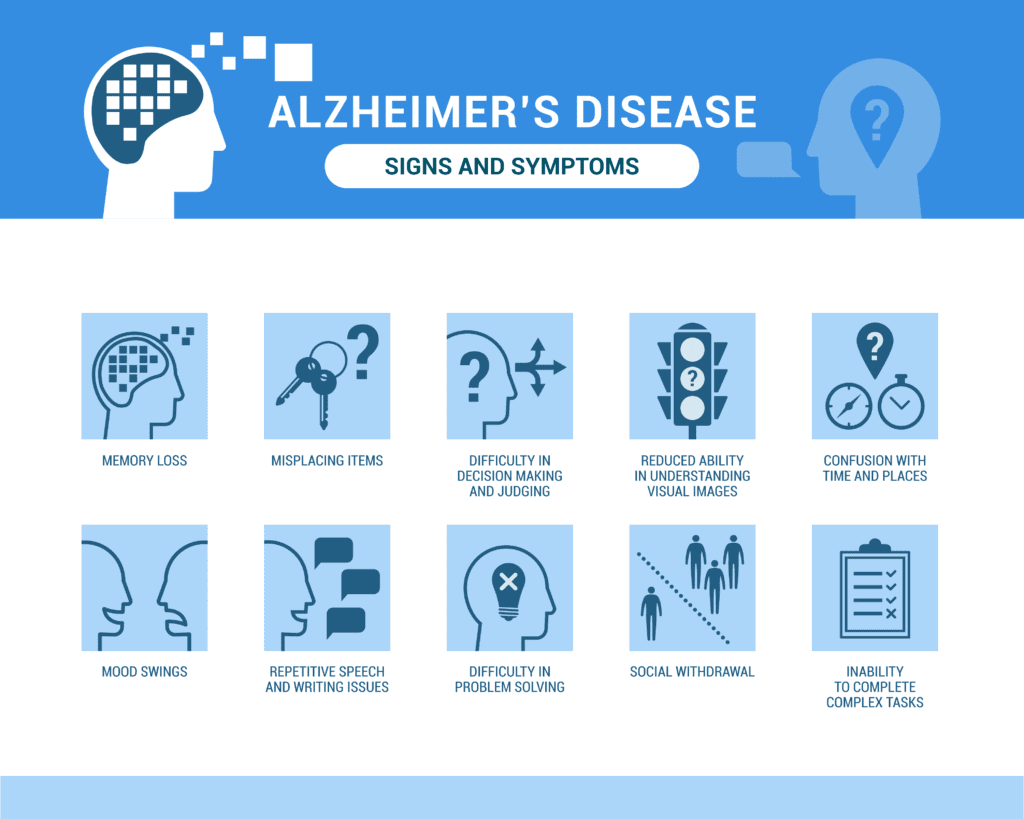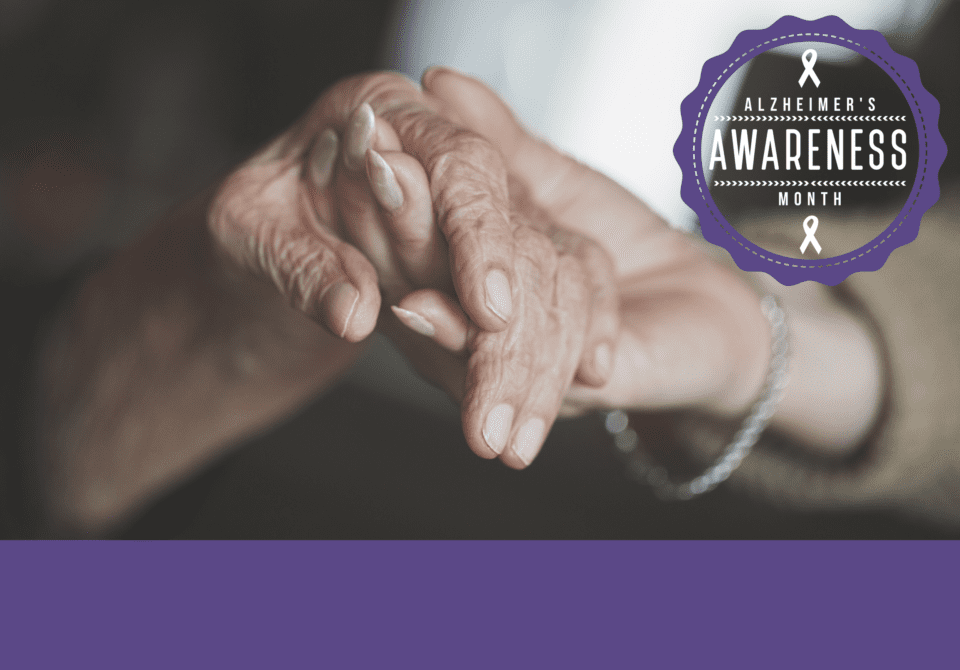


Learn more about the most common form of dementia affecting the elderly
What is Alzheimer’s disease?
Alzheimer’s disease is the most common type of dementia and is one of the top 10 leading causes of death in the United States. It is a progressive disease that begins with mild memory loss, which can eventually lead to speech and concentration difficulties. Alzheimer’s disease is the leading cause of death that cannot be stopped or cured. This month is a great opportunity to hold a conversation about the brain, Alzheimer’s disease, and other dementias to spread awareness.

Causes of Alzheimer’s disease
While scientists do not fully understand the cause of Alzheimer’s disease, there are several factors that can affect each individual differently. Age is the biggest risk factor for Alzheimer’s as the risk increases exponentially with people over 65 years old. Younger people may get Alzheimer’s but it is less common. Other risk factors include family history as it can run in the family. There is also evidence that high blood pressure, high cholesterol, smoking, and diabetes may increase the risk for Alzheimer’s disease.
How do I know it is Alzheimer’s disease?
Alzheimer’s disease is not a normal part of aging. Memory complications at an older age can be one of the first warning signs of cognitive loss. Since there is no cure for Alzheimer’s disease, the key to preventing it is to stay aware and start treatment therapy as early as possible.

According to the National Institute on Aging, someone with Alzheimer’s disease may experience:
- Memory loss that disrupts daily life (i.e., getting lost in a common place).
- Struggle to finish familiar tasks at home, at work, or free time.
- Misplacing things and being unable to retrace steps.
- Declined or bad judgement, difficulty handling money or paying bills.
- If a family member or friend has any or all of these signs, it does not mean they have Alzheimer’s.
Treatment
It is important for people with early dementia to care for their physical and mental health by eating a healthy diet, exercising regularly, getting enough sleep, and getting regular checkups. Medication therapy is used to help improve the quality of life for patients, maintain brain health, manage behavioral symptoms or delay symptoms of the disease. If you are diagnosed with Alzheimer’s disease, there are many resources available to you for education, care planning, and support;
- https://order.nia.nih.gov/sites/default/files/2018-02/Understanding-Memory-Loss.pdf
- https://www.nia.nih.gov/health/caregiving/advance-care-planning
- https://order.nia.nih.gov/sites/default/files/2021-09/alzheimers-disease-medications.pdf
- https://order.nia.nih.gov/sites/default/files/2020-09/next-steps-after-alzheimers-diagnosis.pdf
Caregiving
Caregiving is also an extremely important aspect when tending to a patient with Alzheimer’s disease. As a caregiver, it’s important to take of yourself as well as your loved one. You are not alone, and there are many support resources available to you including local support group chapters and online communities:
- https://www.alz.org/help-support/caregiving
- https://www.alzheimers.gov/life-with-dementia/tips-caregivers
- https://order.nia.nih.gov/sites/default/files/2019-03/Caring_for_a_person_with_AD_508_0.pdf
- https://www.alzheimers.gov/life-with-dementia/find-local-services

